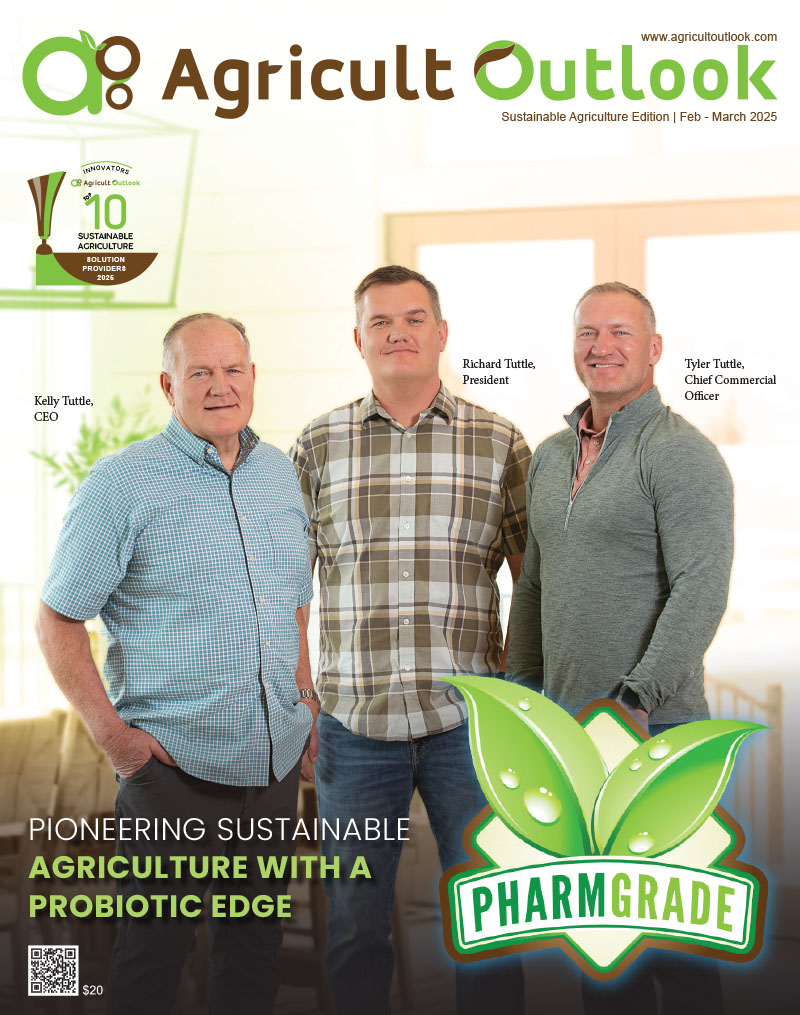Applied Carbon, a technology company designing automated biochar production machines that convert in-field agricultural crop waste into biochar, has officially secured $21.5 million in Series A financing. Led by TO VC, the round saw further participation coming from the likes of Congruent Ventures, Grantham Foundation, Microsoft Climate Innovation Fund, S2G Ventures, Overture.vc, Wireframe Ventures, Autodesk Foundation, Anglo American, Susquehanna Foundation, US Endowment for Forestry and Communities, TELUS Pollinator Fund for Good, and Elemental Excelerator. According to certain reports, Applied Carbon plans on using these newly-raised funds to deploy a fleet of biochar machines across Texas, Oklahoma, Arkansas, and Louisiana, delivering high durability carbon removal and agricultural services in the stated areas. Talk about the company’s biochar machines on a slightly deeper level, they basically bring forth a mobile, in-field solution which is well-equipped to pick up agricultural crop residue left, post harvesting, and convert the same into biochar in a single pass. Once the biochar has been duly produced, it is deposited back onto the field so to simultaneously increase soil health, improve agronomic productivity, reduce lime and fertilizer requirements, as well as provide a durable carbon removal and storage solution. More on the same would reveal how the technology in question tends to leverage a high-tech, fully self-contained trailer pulled behind a tractor that collects crop residue before processing it into biochar via high temperature pyrolysis, eventually quenching it with water and supplementing it with nutrients and microbes as desired by the farmer.
The final biochar product exits the machine and is spread directly onto the field so to eliminate bulk material transport and drastically reduce its cost per ton. Markedly enough, the machine can also operate in an efficient edge-of-field configuration for added flexibility to address diverse crop wastes all year long.
“Multiple independent studies indicate that converting crop waste into biochar has the potential to remove gigatons of CO2 from the atmosphere each year, while creating trillions of dollars in value for the world’s farmers,” said Jason Aramburu, co-founder and CEO of Applied Carbon. “However, there is no commercially available technology to convert these wastes at low cost. Applied Carbon’s patented in-field biochar production system is the first solution that can convert crop waste into biochar at a scale and a cost that makes sense for broad acre farming.”
Beyond the agricultural benefits, biochar manufactured by Applied Carbon’s technology represents an immense carbon removal opportunity. You see, several research studies indicate how carbon removed via biochar is one of the safest and most permanent atmospheric carbon removal methods currently available. In fact, if we go by 2023 data, over 90% of the durable carbon removal sold to commercial buyers came from biochar, making up a trend which is unsurprisingly expected to continue. Optimizing the given potential, Applied Carbon’s biochar technology, coupled with the company’s precision automation and data monitoring system, offers best-in-class carbon removal monitoring, reporting, and verification (MRV), qualities that are critical for transparent engagement with large-scale carbon removal buyers.
The funding in question delivers a rather interesting follow-up to Applied Carbon getting named as a top-20 global finalist in the XPRIZE Carbon Removal competition and as a semifinalist in the Department of Energy’s (DOE) CO2 Removal Purchase Pilot Prize.
“Up to one-third of excess CO2 that has accumulated in the atmosphere since the start of human civilization has come from humans disturbing soil through agriculture,” said Joshua Phitoussi, co-founder and managing partner at TO VC. “To reach our net-zero objectives, we need to put that carbon back where it belongs. Biochar is unique in its potential to do so at a permanence and price point that are conducive to mass-scale adoption of carbon dioxide removal solutions, while also leaving farmers and consumers better off thanks to better soil health and nutrition.”







